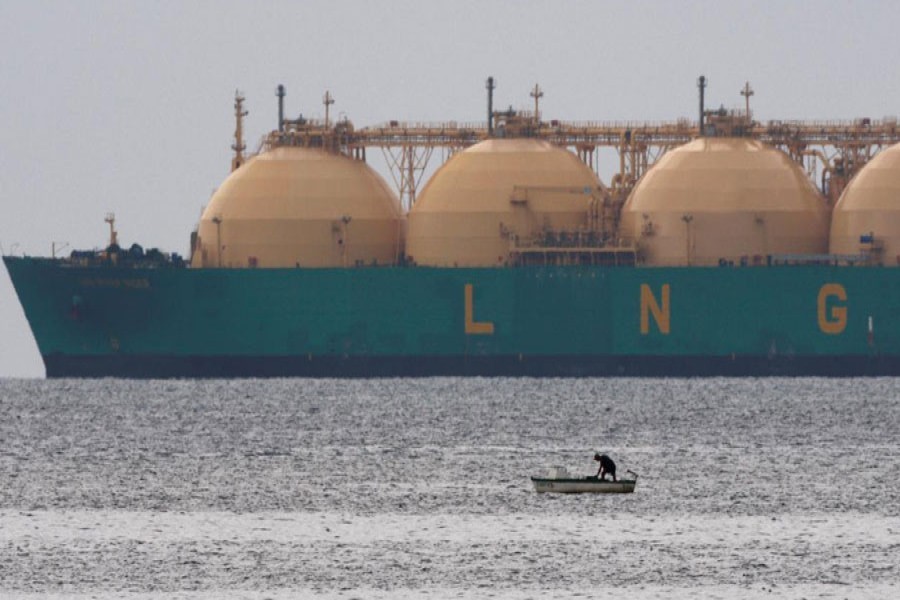Bangladesh has started consuming spot LNG (liquefied natural gas), taking benefit of lower oil and natural gas prices globally.
The first cargo, carrying 138,000 cubic metres of lean LNG, reached Moheshkhali LNG terminal in Cox's Bazar on Friday night, and completed unloading the fuel on the following day.
Re-gasified spot LNG entered the national gas grid immediately after the start of unloading, managing director of the state-run Rupantarita Prakritik Gas Company Limited (RPGCL) Md Kamruzzaman told the FE on Monday.
Bangladesh will have to spend around Tk 1.33 billion, or US$ 15.63 million, to purchase the single cargo of spot LNG, which will save the country around Tk 300 million, said a senior official of the Ministry of Finance.
Vitol Asia Pte delivered the first-ever LNG cargo from spot market. Vitol was selected as the best bidder to supply the cargo to Bangladesh, following a competitive bidding among 14 selected global spot LNG suppliers.
The Cabinet Committee on Public Purchase approved awarding the contract to the Singaporean firm early this month.
Vitol Asia offered the best bid at $ 3.8321 per million British thermal unit (MMBTu) to bag the deal to supply its first LNG cargo to Bangladesh.
The RPGCL, the state-run entity that oversees LNG import, had invited 14 global LNG suppliers in early August to quote prices to supply spot LNG from international market. Four suppliers had submitted bids, among which Vitol became the best bidder.
Currently, the country's LNG import price under long-term deal with Qatar's Qatargas and Oman's Oman Trading International (OTI) ranges around $5.50-$6.0 per MMBtu, the RPGCL official said.
"We have planned to import at least one cargo, carrying around 134,000 cubic metres of lean LNG from spot market, regularly from November."
The 14 selected potential LNG suppliers from spot market have already been invited to submit bids for November delivery, said the RPGCL top brass.
Bangladesh decided to import LNG from spot market and boost import, when the country could complete natural gas transmission pipelines to ensure full utilisation of its two operational floating storage and regasification units (FSRUs).
After March 2020, the pipelines were ready to carry the full capacity of around 1.0 billion cubic feet (Bcf) per day of regasified LNG.
Before laying the pipeline, the GTCL could carry a maximum of around 650 million cubic feet per day (mmcfd) of re-gasified LNG to end-users.
But the coronavirus pandemic and subsequent shutdown of business operations across the world delayed Bangladesh's LNG purchase from spot market, said a senior official of the Energy and Mineral Resources Division.
Currently, the country has two operational FSRUs, each of which has the capacity to re-gasify around 500 mmcfd equivalent of LNG.
Excelerate Energy started supplying re-gasified LNG commercially from its FSRU in August 2018, while Summit started its supply in April 2019.
Earlier, the state-run Petrobangla was operating the FSRUs at about their half capacity, as the pipelines were not ready to carry the re-gasified LNG.


